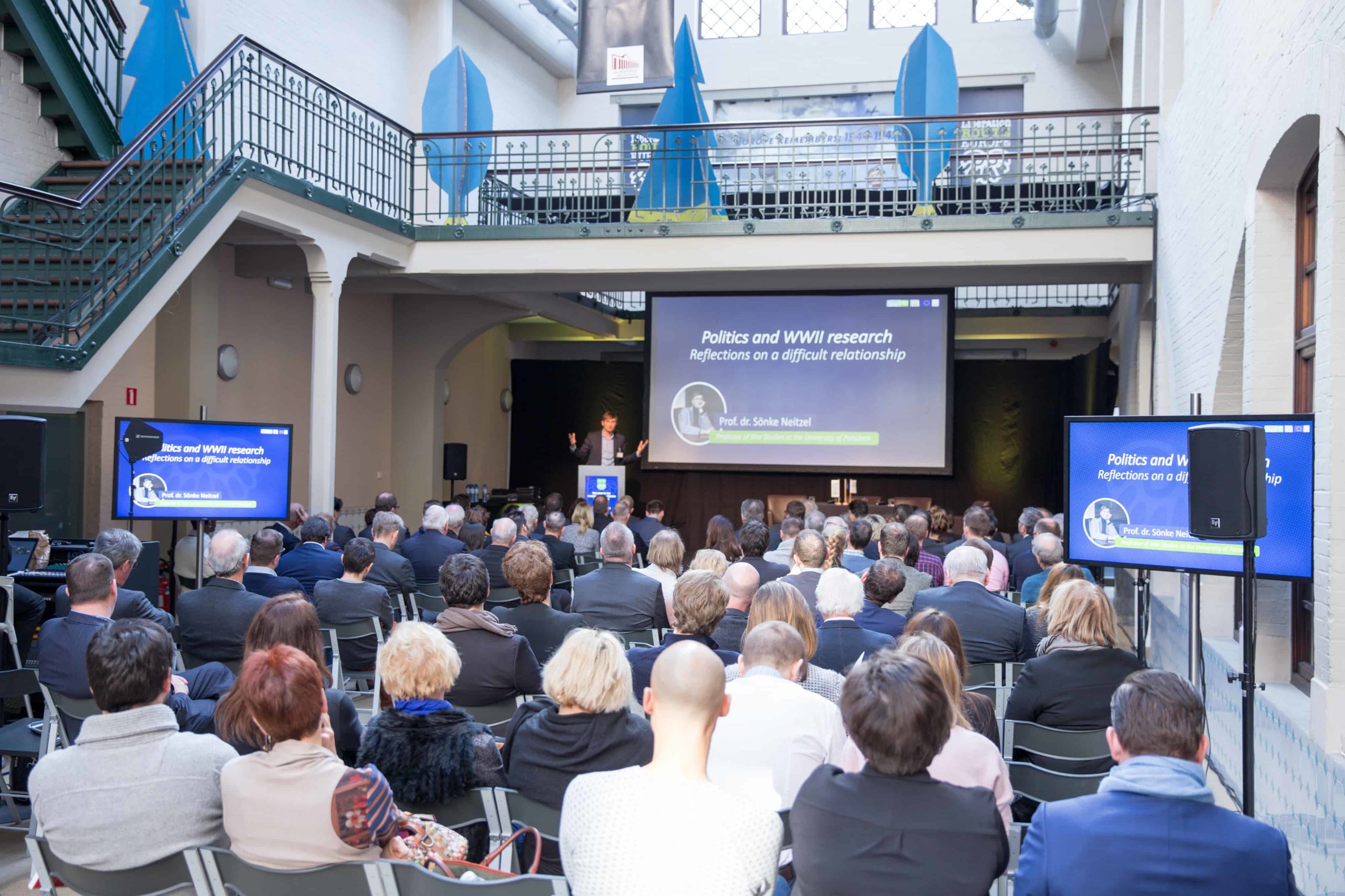– Prominent role for WWII remembrance trail documenting 75 years of liberation –
“There is no single truth when it comes to history. It’s therefore very important to try to bring together different perspectives. That’s what Liberation Route Europe does concerning World War II. It creates an overlap of all the stories. That in itself merits a huge compliment.”
These are the words of Sönke Neitzel, German Professor of War Studies at the University of Potsdam, who was speaking at the first international partner conference of the Liberation Route Europe Foundation in Brussels late last week. Around 150 people from the WWII sector gathered for the conference to listen to several speeches and receive an overview of the various developments within Liberation Route Europe.
Silvia Draghi, who was present on behalf of the European Commission, also praised the work of the organisation behind the remembrance trail which traverses eight countries. “Many tourists from overseas visit several countries when they come to Europe. The history of the Second World War plays a special part in their endeavour, and you have made it attractive to tourists in a very unique way.”
Liberation Route Europe will play a prominent role in the run-up to 75 years of liberation and the end of World War II (2019 and 2020). The organisation will be involved with various activities, including setting up an international public campaign and launching an international long-distance walking route from London to Berlin. The trail should be ready in 2019.
Warning
A day prior to the event in Brussels, Liberation Route Europe members came together at the Bastogne War Museum in Belgium, where they took a tour and then had dinner at the museum. During the gathering, Israeli historian and diplomat Professor Élie Barnavi warned about a changing global political landscape. He especially mentioned the current government in Poland, which, in his opinion, is waging “a cultural war directed against all of us and democracy.” He was referring to that government’s decision not to open the new Museum of the Second World War in Poland. The museum aims to present Poland’s role during the war within an international context, but the government has a more nationalistic perspective in mind.
Collaboration
Board member Ton Heerts of vfonds – the Dutch National Foundation of Peace, Freedom and Veteran Support – also spoke during the dinner. The foundation has been supporting Liberation Route Europe financially since 2013 and will continue to do so up to and including next year. Heerts called on everyone present to help further develop the trail: “We all believe in the mission of Liberation Route Europe. Only by working together can we continue to keep the very important memory of World War II alive.”
Victoria van Krieken, Director of the Liberation Route Europe Foundation, looks back on the two-day event in Belgium with satisfaction: “It has been beautiful and great to see our route helping to unite such a multi-disciplinary group of people. Historians, politicians, guides, tour operators and many others are working together to convey this important message to the widest audience possible: even today, freedom cannot be taken for granted.”
